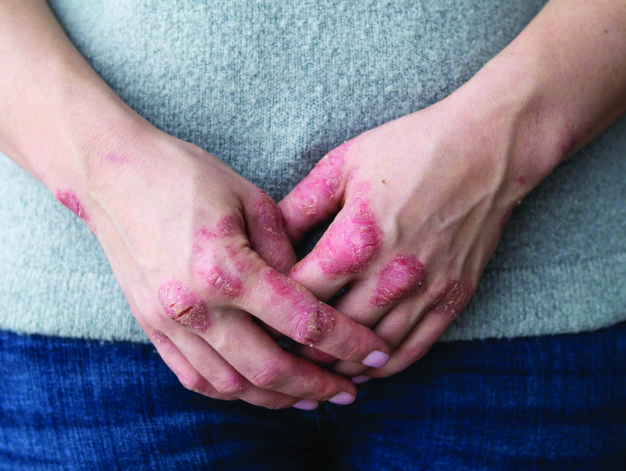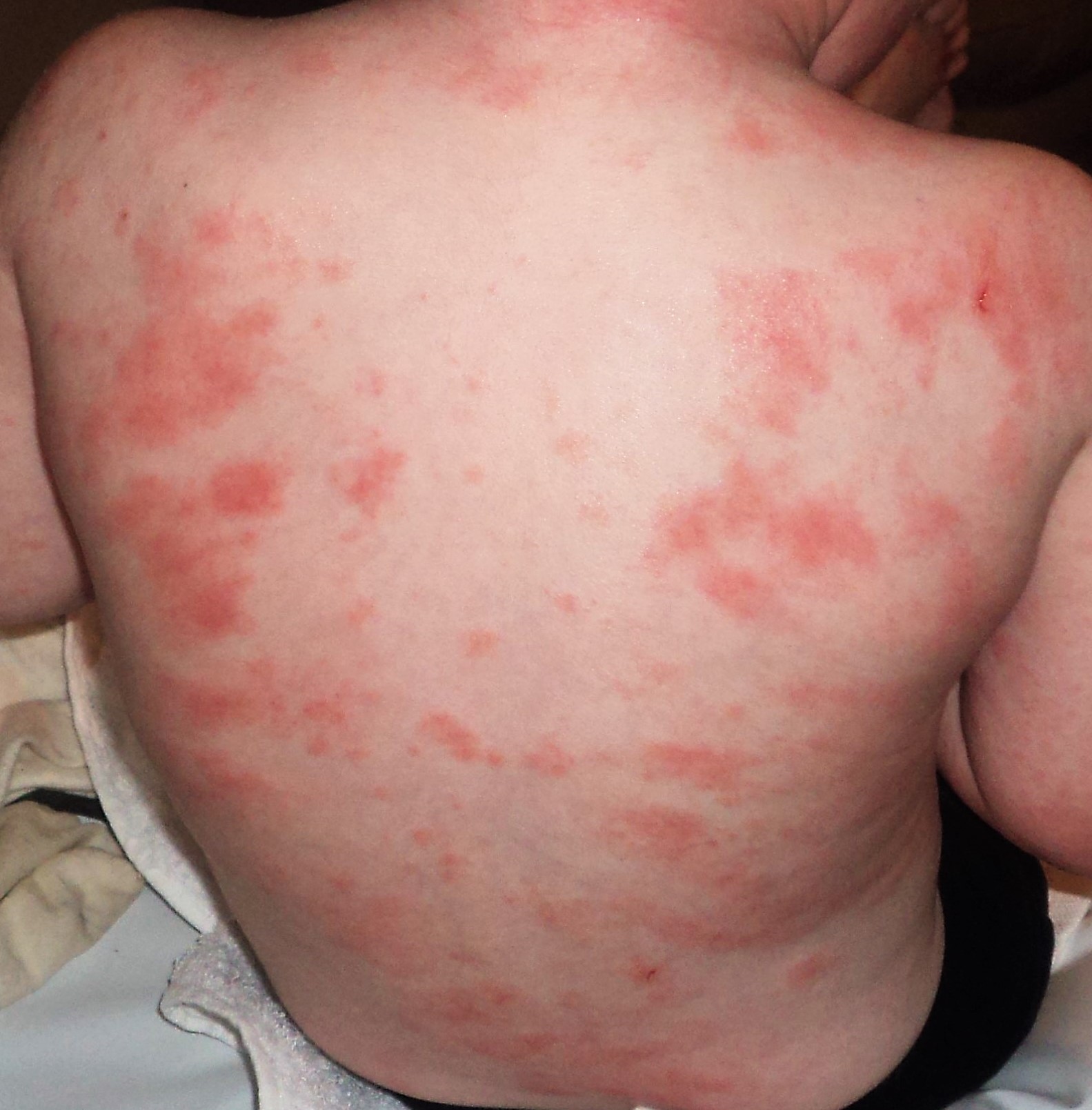Eczema / Atopic Dermatitis
Eczema / Atopic Dermatitis
Find out the best way to care for you or your child’s eczema.
Record important information about your eczema management plan and share with all your health professionals.
Topical Corticosteroids (steroid cream) – learn more about this common treatment used for managing eczema flares.
Easy-to-follow advice and practical tips to help you care for your child’s sensitive skin.

what is eczema?
Eczema (or atopic dermatitis) is a long-term skin condition that makes skin itchy and needs regular care. In lighter skin, eczema may look red. In darker skin, eczema may look grey, purple or brown. The skin can be dry and sometimes flaky. This should improve as you get control of eczema.
While it cannot be cured, there are simple actions you can take to keep skin healthy, meaning fewer eczema flares and a faster recovery.
How can I get control of Eczema?
Many people can feel confused about how to treat eczema. It can be hard to know what treatments to use and when, because eczema changes over time.
There are two main treatments for eczema:
- Flare control creams (usually steroid creams) – to get control of eczema.
- Moisturising creams (‘emollients’) – to keep control of eczema.
Both treatments are needed. This is because they help control eczema in different ways. When these two treatments are used well, they will treat most eczema.
If you have eczema, or care for someone with eczema, check out the Eczema Care Plan, and access the Eczema Care Online Toolkit.
You can also explore these helpful resources:
- Topical Corticosteroids for Eczema Flare Control is a factsheet to help you learn more about flare control creams.
- Caring for your baby or small child with eczema is a factsheet to help you learn more about eczema in babies and young children.
- Treating eczema can feel challenging. 5 Questions to Ask When Your Eczema is Hard to Manage can help you talk with your healthcare professional and find a treatment plan that works for you.
- Eczema Care for Aboriginal and Torres Strait Islander Communities is a factsheet with clear and practical information to help families understand eczema and keep skin strong and healthy.
- Eczema Care for Everyone – Resources in Your Language is a resource available in 11 different languages. It includes simple tips on eczema care, common triggers, and treatment options to help you, your family, or anyone you support manage eczema.

How common is eczema?
Eczema is one of the 10 most common chronic conditions in Australia. It currently affects nearly 3 million Australians, among whom about 1 in 3 children aged 6 years or under have eczema and more than half a million Australians live with moderate to severe eczema (Eczema Support Australia). Some children outgrow eczema, but it can continue through teenage years and adulthood.
What causes Eczema?
The exact cause of eczema is not fully understood. It is likely to be a combination of:
- Genetics – eczema can run in families
- Environment – the skin works less well as a barrier to things that might irritate the skin
- Immune system – the immune system over-reacts.
Aside from itchy skin, what are the other effects of Eczema?
Eczema care is not just about your skin. Eczema can have a significant impact on quality of life for those with eczema, as well as family and caregivers. Let your health professionals know if:
- Your mental health is worse
- You are having trouble sleeping, or
- You are finding it difficult to concentrate at work or school.
If you have eczema, or care for someone with eczema, you might find it useful to connect with others through trusted organisations like Eczema Support Australia.
Need more information?
To contact the Health Care Consumers Association or to register to receive updates on this project see Contact.
We recommend using Choosing Wisely’s 5 questions to ask your doctor or other health care provider before you get any test, treatment or procedure.
Learn more about questions to ask your doctor and finding good health information online on the Canberra Health Literacy Hub.
Are you a health professional looking for more information about managing eczema? QHUB provides free and high-quality education and resources that support safe and appropriate use of medicines.
REFERENCES:
Choosing Wisely Australia (2024). https://www.choosingwisely.org.au/
Eczema Support Australia (2023). https://www.eczemasupport.org.au/
Eczema Support Australia (2023). The Burden of Eczema – Evidence for a National Strategy. Queensland, Australia. Available from https://www.eczemasupport.org.au/wp-content/uploads/2023/08/The-Burden-of-Eczema-Evidence-for-a-National-Strategy.pdf
Medcast – Quality Use of Medicines (2024). https://medcast.com.au/qhub

